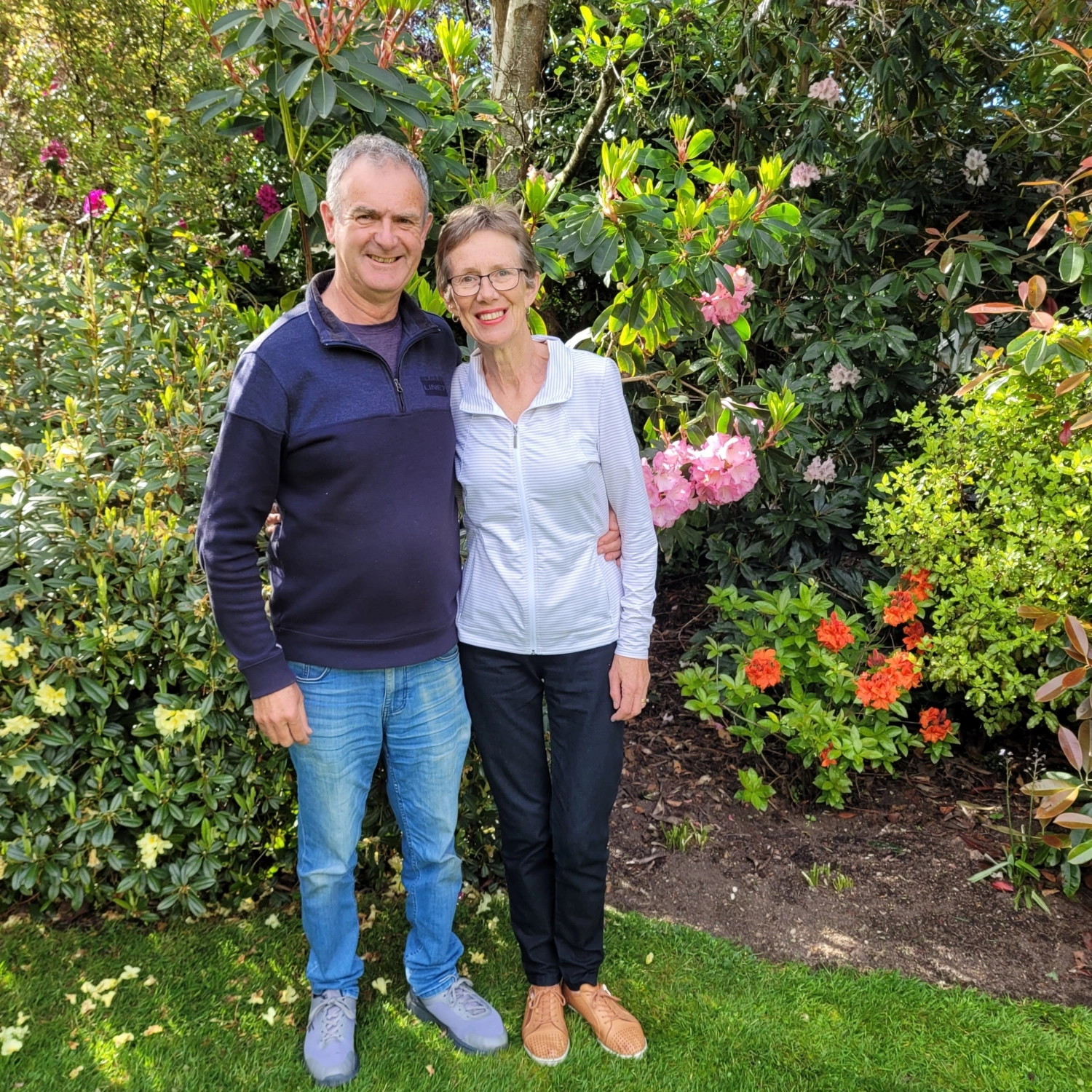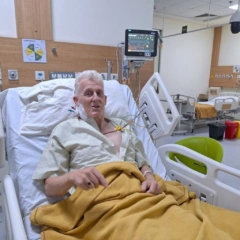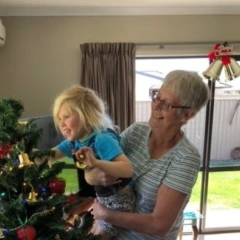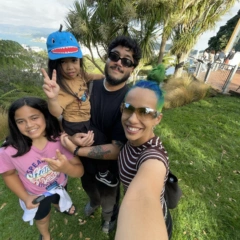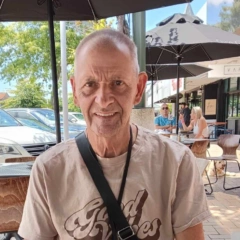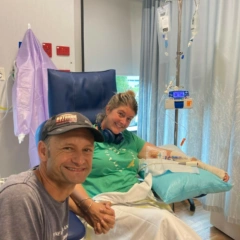Can we start this afternoon?
Marion and her husband were both high school teachers before they retired together at the end of 2020. “We didn’t want to become sit-on-the-couch type of people, so we bought ourselves e-bikes and planned to do lots of gardening. That’s why I felt so frustrated when I started to get a sore back, in late 2020… I thought I must have injured it when I was outside, so I didn’t do anything about it.”
The initial COVID-19 lockdowns had ended, and the couple were enjoying getting out and doing things. But back pain and fatigue started to get to Marion. “And I often felt faint – one day, I actually did faint at a friend’s house… that’s when they said to me, Marion, it’s time to do something about this.” By this point it had been six months of hoping things would improve and Marion agreed it was time to see her doctor.
Marion’s doctor immediately reassured her. “He said to me, ‘We’ll figure this out.’”
Marion had some tests done and was referred to haematology in Dunedin. She learned that she had Follicular lymphoma, a type of non-Hodgkin lymphoma, and would need to begin treatment soon. “I said to the haematologist, ‘OK, can we start this afternoon?’ and she smiled and said, ‘Er, no, not this afternoon but we won’t be slow about this.’ Sure enough, just a few days later I was back there getting treatment.”
It was there in hospital that Marion was visited by Deborah from LBC. Deborah explained some of the ways that she and the team at LBC could support her, such as providing information resources, support meetings and vouchers. Marion knew she couldn’t go through this without help. “I wasn’t the sharpest at that stage, and I relied on my husband a lot. I remember thinking, ‘This would be so much harder if I were alone, or if my children were small.’”
“I felt so encouraged by having my family around, and my friends… I had people who’d help clean my house, provide lovely meals, pray for me and drive me around…. I feel like one of the lucky ones.”
She’s also grateful to the doctors and nurses who treated her. “I was a real person to them, not just a ‘case’ in hospital.”
Now, thanks to them, Marion is back enjoying life. “The biggest tumour I had has shrunk a lot, and they’ve called it ‘partial remission’. It means I can live a pretty normal life. Regular infusions of rituximab are keeping the cancer under control. So I’m happy.”
Marion’s loved ones are thrilled for her too. “During our first big trip on our bike after chemo, we sent a photo to our family WhatsApp group. Everyone in the chat responded with smiles and hugs, because they understood what that meant.”
“I may not be as fit as I used to be, but I can do the things I want to do. I can make choices about how I spend my life again.”
Fast Facts: Follicular lymphoma
- Follicular lymphoma is a type of non-Hodgkin lymphoma affecting approximately 195 New Zealanders each year
- It gets its name from the circular arrangement of lymphocytes inside the lymph nodes
- Follicular lymphoma usually grows slowly over months or years.
